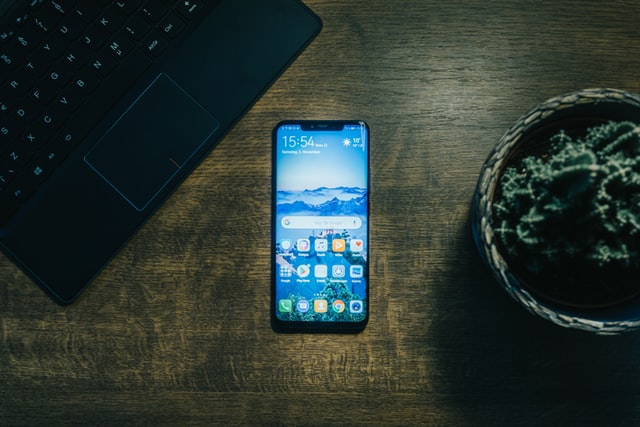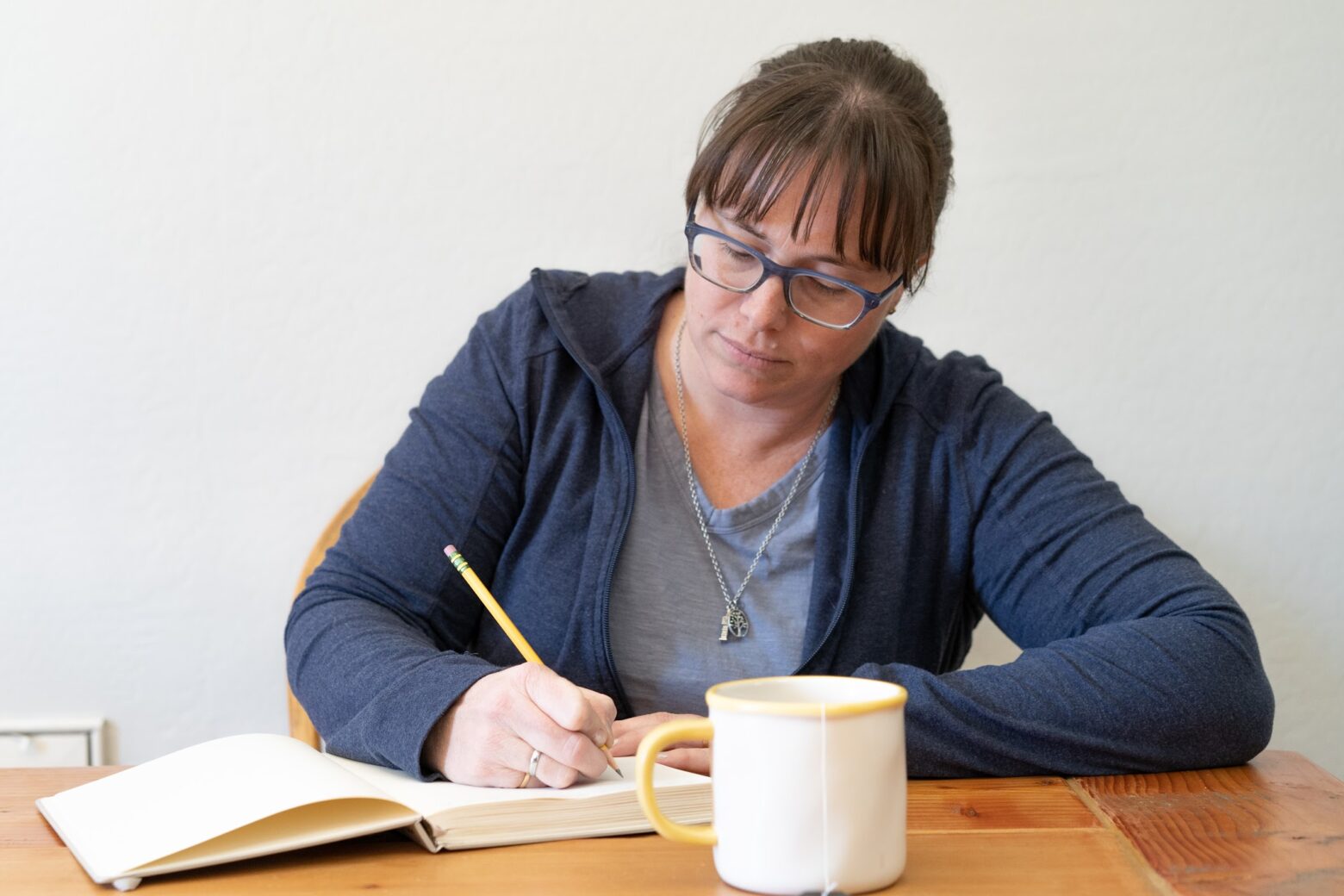I’ve been nudged by my inner voice to have time away from my phone for years. But I’ve always brushed it off as being too extreme or too legalistic. Then I made the decision in the summer of 2020 to put my phone away each night. So, I took the leap and tried it.
It’s unbelievable how such a small change can make such a humongous impact in my life.
I literally expected to see no results.
It felt so pointless and dumb, yet it has made a huge influence on my day.
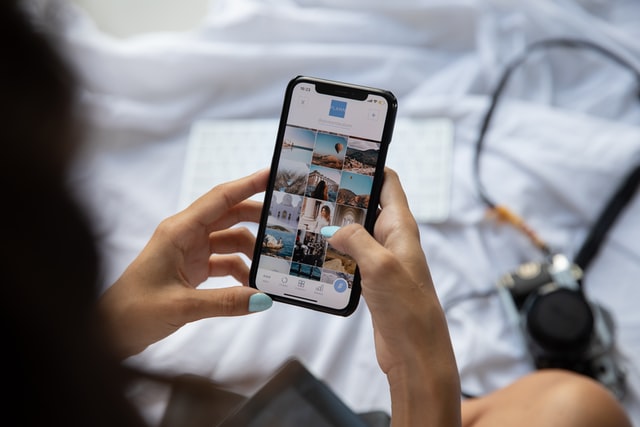
Article Outline:
- My Story
- Places Where I Was Getting Stuck
- Evenings After 9pm
- Mornings After My Alarm
- My New Routine
- Questions
- Quotes from Experts
My phone needs a bedtime even more than my 5-year-old.
I was listening to a podcast about Sabbath when they compared Old Testament idol worship to “something that they would think about throughout the day and would consume their time.”
Did you know that 95% of Americans interact with their phone before they go to sleep and immediately before they get up? Even before they get out of bed? (Here is that Sabbath podcast.)
How is that not an idol?
I felt like that truth stabbed me in the heart. I needed time away from my phone.
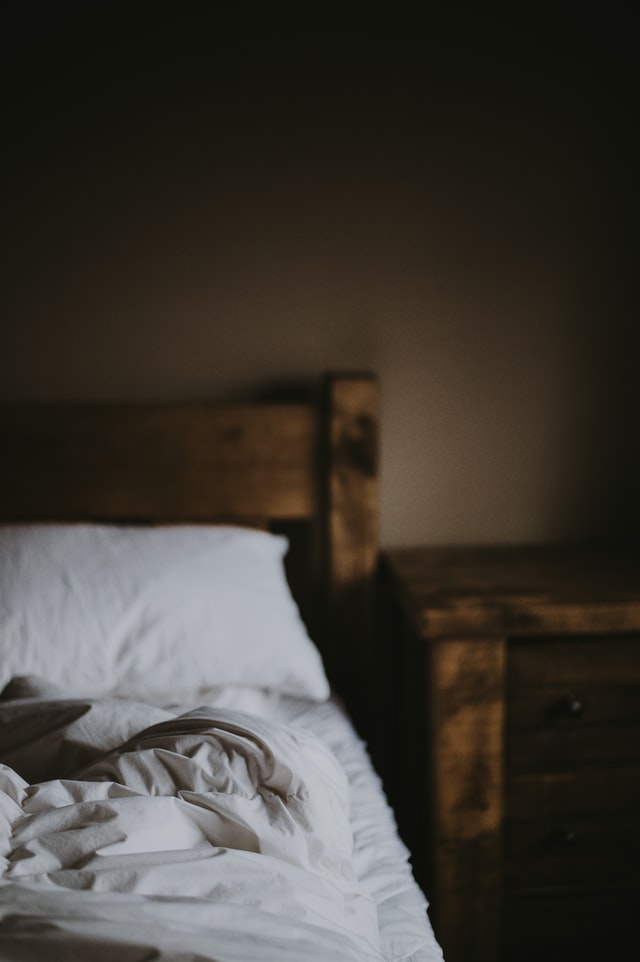
Especially because of those times in my day when I feel self-control at its lowest.
- At the end of a long day before bed.
- In the morning before my coffee.
My ability to make clear decisions and think rationally is almost non-existent in those times.
At the risk of sounding extreme, I will lay out my journey so that you can decide what would work for you.
My journal entries from May 2020:
This next week I am going to have a 9:30pm bedtime for my phone and put it in my office to charge. I’m going to use an old fashioned alarm clock so that I’m not sleeping next to my phone and having it be the first thing that I interact with when I wake up.
So, I’m going to try this for a week and see how it goes.
I’m hoping it will help my mental health this week as well as getting up on time.
. . . . . . . . . .
Putting my phone to bed and keeping it in my office was a really great experience. I went to bed early, I woke up on time, and my mind was not spinning with anxiety or thoughts about what’s going on in the world.
. . . . . . . . . . .
I was surprised that I had an itch to check my phone several times. I wouldn’t consider myself tied to my phone but apparently there’s definitely a bit of an addiction there..
So I’m definitely going to continue this experiment for a week. And then decide if I want to go for another week. It’s still to early for me to decide if this is a long term thing or a short term adjustment.
It has been a year and I am so thankful that I took those difficult steps.
Let’s look at the two places in my day that I kept getting stuck.
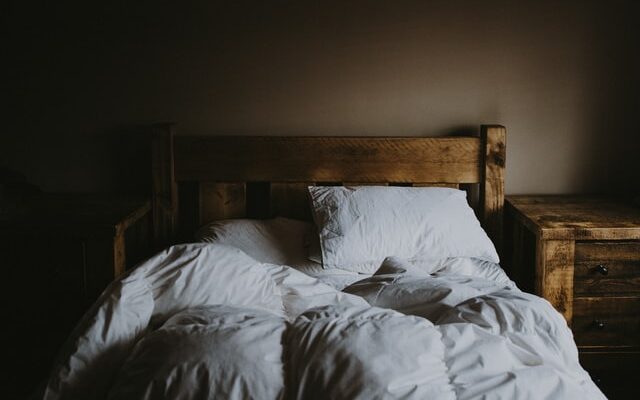
Evenings after 9pm:
I can easily fill my day with constant input and not leave margin or white space to process all of it. The demands and needs of my kids, household tasks, the farm chores, the podcast in my ear, my Instagram feed full of ideas and thoughts, the animals, the many text messages, YouTube, music playing, traffic, conversations, the dog barking… it is all TOO MUCH.
By the end of the day I feel like my head is buzzing with information and noise. My self-control has been used up. I am losing a very real battle with decision fatigue.
My patience and kindness have frayed.
I am worn out. Most of it has been good. Most days are full of good and beautiful things. But they are FULL.
I am not the best version of myself when I sit and scroll on my phone in that state. My mind needs quiet and space to slow down.
So I started putting my phone in my office, closing the door, and walking away. I do not need to be that fully connected 24 hours a day.
Putting my phone to bed has given me space for quiet, for reading in the evening, for talking with my husband, for thinking about my day and what tomorrow holds.
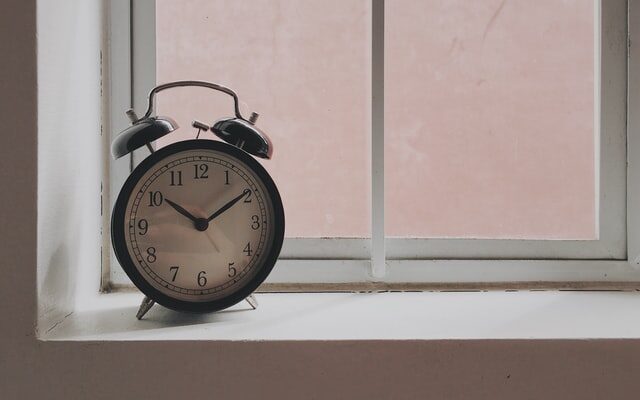
My Mornings after my alarm:
I was setting the alarm earlier but instead of getting out of bed, I would scroll. In the mornings after my alarm went off I would lay there and look at the news, Instagram, email… basically anything to not have to get out of bed.
By the time I got into the kitchen, the kids have come downstairs for their morning chores. At that point, I can’t read a sentence in my devotional or make my coffee without an interruption.
It was my own stupid fault. I felt so frustrated with myself.
I do not want to start my day angry at my kids for just being excited to see me and talk about Minecraft.
I am not a morning person. I move very slow.
I do not want to make decisions or have a conversation when I get out of bed. I need to make my morning routine what Kendra from the Lazy Genius would call “a slow on-ramp to your day”. Yes, that! Picture an antique stem engine slowly working up to a chug…chug.. chug.
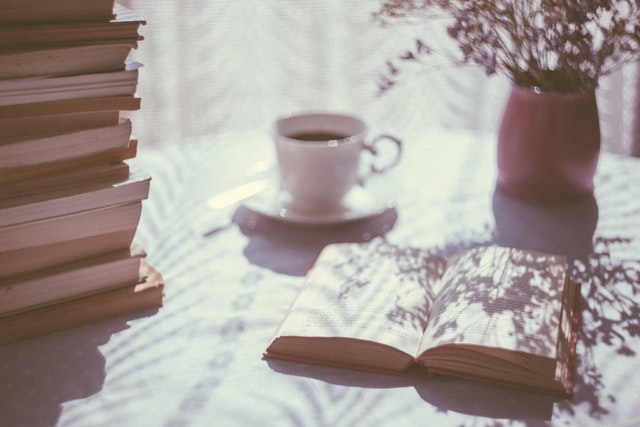
So here is my new morning routine since May of 2020:
- Turn off alarm that goes of in my bathroom (this makes me get out of bed)
- Shower, dressed, shoes on, hair up, my comfy sweater on
- open blinds, turn on lamps, light a candle on my coffee table
- start my coffee and eat light breakfast alone in a quiet kitchen
- Bible and devotional time with my coffee
- Then I do a quick check on my phone for texts
- Greeting my kids, morning chores, kids breakfast, talk about the day
When I give myself the time and space to do that slow adjustment my day is so much better. My patience level, productivity, and my attitude are healthier.
And for me, that means going slow, not having input before my first cup of coffee, and having some quiet to let my thoughts wake up.
I am able to give grace to others if I begin the day by giving grace to myself.
So, what is your experience like with your phone?
- What times of the day are difficult for you?
- How does your phone play a role in your mental health?
- What apps do you spend the most time on and when?
- What do you learn when you look at your Digital Wellbeing info in your phone settings? What does that tell you?
- What makes you feel drained and frustrated?
- Which apps have notifications turned on?
- Do you use the “Do Not Disturb” settings? How can you do so?
- If your mind was clear, what would you be able to do more of?
- Does your phone charge next to you when you sleep at night? What are the reasons you choose to do that?

Do you need more?
Here is what a few intelligent experts have to say about phone connectivity:
“Yes. I believe that your iPhone is taking over your life. If you don’t give yourself boundaries with your phone you will live in a constant rut.”
“It’s time to break up with your phone. Just a small break. It’s time to stop seeing what other people want all the time, so you can start remembering what you want.”
from Amy Landino in Good Morning Good Life (Chapter 2 – Defy)
On the subject of putting our focus on other things. “…if you want to eliminate the addictive pull of entertainment sites on your time and attention, give your brain a quality alternative. Not only will this preserve your ability to resist distraction and concentrate, but you might even fulfill … what it means to live, and not just exist.”
Cal Newport in Deep Work (Rule #3 – Quit Social Media)
Explaining her morning routine… “I walk into the bathroom and turn off the alarm. … where is my phone? In the bathroom. Close enough so that I can hear the phone ring if someone calls and the alarm ring in the morning. But, far enough so I don’t fall into temptation. If my phone is on the nightstand, I will grab it without thinking and stay in bed reading emails. You know that you’re guilty of the same. If it’s in reach, it’s easy to grab without thinking.”
Mel Robbins in The 5 Second Rule (chapter 10 Increase Productivity)
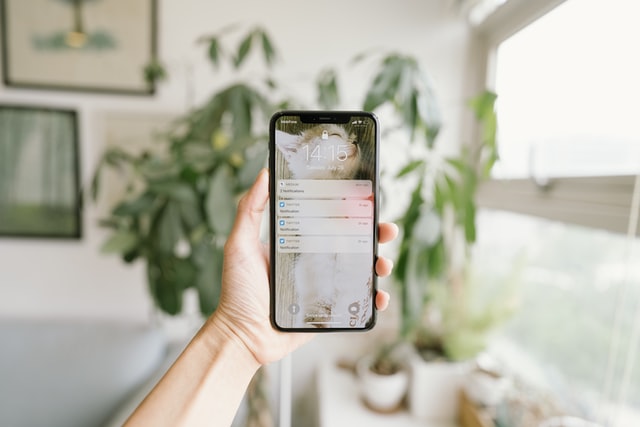
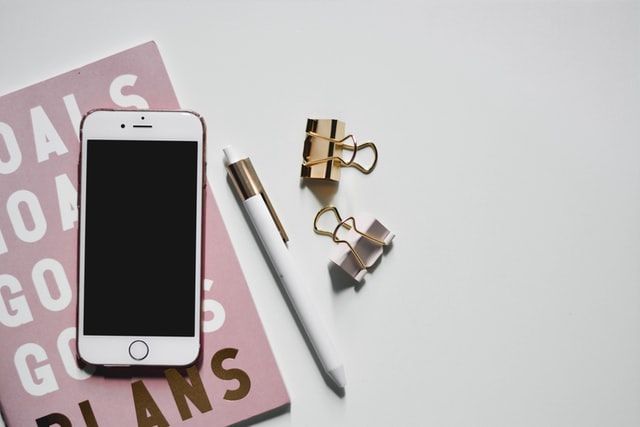
Embrace your own personal needs in whatever you decide to do with your phone and how you use it. Being connected to the world through a device that fits in our pocket is an incredible tool. We can use it to enhance our lives and we can choose when to be available (and when to take a break).
Small changes can make a huge impact. Try it for a week, then let me know what happens. You might be surprised by the results.
Take Care! – April
[Photos by Priscilla Du Preez, Content Pixie, ROBIN WORRALL,
Plann, Tran Mau Tri Tam and others on Unsplash]
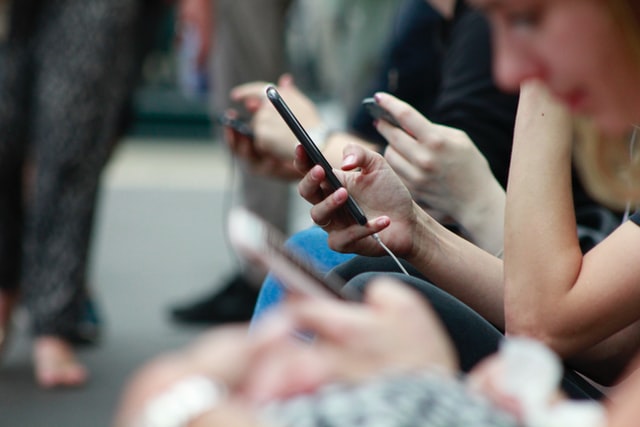
-
Join me on Substack!
Hey! Hello! 😁 I am so glad you have found my blog! This is my home place where I test out writing work, post weekly articles, and share updates on my books. I love having my own corner of the internet that I can call my own. Unfortunately because of bots and ugly internet trolls,……
-
Preparing for Rest: Meal Planning Ideas for a Relaxing Weekend
Make weekend meals effortless with simple themes, make-ahead options, and family-friendly ideas. Tips to plan meals that nourish without stress, so you can truly enjoy your time of rest. All the household tasks don’t come to a halt just because I decide to rest. Meals still need to be made, and unfortunately, forest creatures don’t……
-
How I Structure Mornings with my Kids for a Smooth Start
A simple, flexible morning routine that helps kids start the day with independence, responsibility, and peace—while making mornings smoother for the whole family. Practical ideas & chore lists. A key piece to living deliberately is setting up the day for success. Whatever your day holds, let’s reclaim the mornings with time to ourselves, a reset……
-
Dear Homeschool Parent: Read This on the Hard Days
12 lessons from 15 years of homeschooling—what I’ve learned, what I’d do differently, and what I wish I knew sooner If you’re a homeschooler, this one’s for you! But even if you’re not, I think you’ll find encouragement here too. This post is a bit longer than usual because I wanted to share plenty of……
